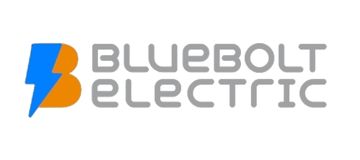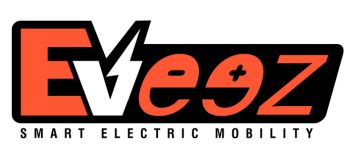Our Alumni’s works in
























This course will make you competent to design both OFF-Grid & ON-Grid plant, perform site survey & can prepare a technical report. This course framework is not only to train & certify Solar Power Plant Designers but also to open doors towards successful entrepreneur.
























Programs Accredited by Govt. Bodies
Since prehistoric days, the Sun has been revered as a life-giver to our world. The Industrial Revolution taught us how to use sunlight as a source of energy. India has a tremendous amount of solar energy potential. India's land area receives about 5,000 trillion kWh of energy each year, with most sections receiving 4-7 kWh per sq. m every day. Solar photovoltaic power can be effectively harnessed in India, allowing for massive scalability. Solar also allows for decentralized power generation and allows for rapid capacity expansion with short lead periods. Rural electrification and addressing other energy needs for power, heating, and cooling in both rural and urban areas can benefit from off-grid decentralised and low-temperature applications. Solar is the most secure of all energy sources in terms of energy security because it is abundantly available. A small proportion of total incident solar energy (if captured correctly) might theoretically meet the entire country's electricity needs. The National Solar Mission (NSM) was launched on 11th January, 2010. NSM is a major initiative of the Government of India with active participation from States to promote ecological sustainable growth while addressing India’s energy security challenges. It will also constitute a major contribution by India to the global effort to meet the challenges of climate change.
In order to achieve the above target, the Government of India have launched various schemes to encourage generation of solar power in the country like Solar Park Scheme, VGF Schemes, CPSU Scheme, Defence Scheme, Canal bank & Canal top Scheme, Bundling Scheme, Grid Connected Solar Rooftop Scheme etc.
The solar energy or the Solar photovoltaic systems can be divided into two broader segment
For a candidate to excel in the Solar Domain one must know thoroughly on the different systems, estimation, design parameters, costing etc. This course is intended for those who belong to the beginner to intermediate sector having great passion towards Solar Energy. The course will start from basics of Solar Energy and will drive you through the individual determining factors for a power plant and will gain in-depth exposure about solar plant design both for KW scale rooftop & MW scale Ground-mounted solar plants starting from basics. System design, documentation, cost estimation & net energy yield estimation is fully explained by segregating long lectures into small sections.
Solar Solar OFF Grid Systems
A lot of simulation software are out there to help you with the design and simulation of Solar Power Systems, of which the industrial standards are met with AutoCad, PVsyst, SketchUP etc. The audience will be familiar with the modern software. Sample calculations & examples of major critical electrical equipment with pictures demonstrated in a very simple approach.
The course will have MCQ & Assessment sessions from time to time to test their understanding & self-evaluation. The assessments will be based on a live project where they will deal with real constraints & solutions which industrialists face during the design stage. All the lectures are equipped with well-managed content with real examples, pictures & topics are arranged sequentially to keep the objective unique.


[gravityform id="10" title="false" description="false" ajax="true"]
DIYguru will feel proud to awards the certificate of competency in 'Solar Power Plant Designing' to only those aspirants who have 100% completed their online module.
DIYguru proficiency Certificate is highly valuable by industry giants namely Robert Bosch; Maruti Suzuki; Hyundai Motors, are the name of few, which is why DIYguru earned certificates are secured with a unique certificate ID. To check the validation of the certificate, check out the footer section of the home page.
Certificate provided to you is an online certificate, which means there is no need to download, after completion of the course, aspirants are requested to check their profile to view their earned certificate. In case the certificate is not issued feel free to write us a certificate@diyguru.org, our team will help you out.
[sp_easyaccordion id="18442"]

No 06-01 Jalan Padan Ria 4, Pusat Perdagangan Padan, 81100 Johar Bahru

DIYguru, Vroom Services Limited, Level 6, Plot 10, Road 12, Block F, Niketan, Gulshan, Dhaka 1212.

DIYguru, Abhiyantriki Karmashala Pvt. Ltd. ward No. 06, Dadhikot, Suryabinayak, Bhaktapur, Nepal
Learners from 170+ countries have grown in their career through our programs
Spend less time worrying about job availability, and more time growing your knowledge. Join DIYguru Program today.
If you’re a current student, please get in touch through the DIYguru dashboard to ask about more details of this Program.
Please note, eligibility for DIYguru course is reserved to students who have done related projects and have relevant profiles matching with the pre-requisite of this course.
Our 7-day money-back guarantee starts from the moment of signup and runs through the free week. Cancellations between days 7 and 30 will get a prorated refund.
Fees for the program is charged only when the admission is approved.

DIYguru is India’s largest Hardware Enabled upskilling platform for learners benefiting more than 85,000+ DIY enthusiasts across 400+ institutions through online courses and DIY KITS, imparting hands-on training to acquire industry relevant skills.
374, MG Road, South Delhi,
New Delhi (IN)- 110030

Copyright © 2014-22 | DIYguru Education & Research Pvt. Ltd. All rights reserved.